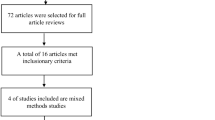Abstract
Being the second most populous country in the world and with rich cultural, linguistic, and ethnic diversity, the patterns of care and services vary a great deal across India. However, some common underlying themes are discernible. There have been major governmental initiatives that have relevance for prevention of intellectual disability such as improved prenatal and perinatal care, immunization, nutritional status of young children. An ambitious nation-wide program for early detection and intervention for developmental delays has been recently launched by central government. Innovative models of family oriented parent mediated home-based interventions have been developed. Some progressive legislations for individual and family empowerment have been enacted; however, much needs to be done in terms of implementation. Community based approaches such as community based rehabilitation is slowly and steadily emerging as an approach to cover large sections of population. Special education services have had a fairly long history and a remarkable growth. Inclusive education for children 6–14 years old has seen phenomenal growth, though there are many unresolved issues such as quality of education and human resources in mainstream settings. Services for adults with ID is far and few and needs greater attention. Large gaps continue to remain in health services such as medical / psychiatric evaluation and management. One encouraging trend has been organization of parents into parent associations.
Access this chapter
Tax calculation will be finalised at checkout
Purchases are for personal use only
Similar content being viewed by others
References
Girimaji SC, Srinath S. Perspectives of intellectual disability in India: epidemiology, policy, services for children and adults. Curr Opin Psychiatry. 2010;23(5):441–6.
Lakhan R, Sharma M. A study of knowledge, attitudes and practices (KAP) survey of families toward their children with intellectual disability in Barwani, India. DCID J. 2010;21(2):103–17.
Narayan J. Intellectual disabilities in India. In: Country report presented at 2nd international conference on intellectual disabilities/mental retardation; Bangkok, 2007 February 16. http://www.bangkok-id-conference.org/pdf/intellectual-disabilities-in-India
Government of India. National Institute for Mentally Handicapped (NIMH). About NIMH. http://www.nimhindia.org/abtmain.html
Srinath S, Girimaji S, Seshadri S, Vijay Sagar J, Golhar T. Child and adolescent psychiatry in India. In: Kulhara P, Avasthi A, Thirunavukkarasu M, editors. Themes and issues in contemporary Indian psychiatry. New Delhi: Indian Psychiatric Society; 2011. p. 38–47.
Bharath S, Srinath S, Seshadri S, Girimaji S. Child and adolescent psychiatry in-patient facility. Indian J Pediatr. 1997;64(6):829–32.
United Nations. Convention on the rights of persons with disabilities. http://www.un.org/disabilities/convention/conventionfull.shtml
Cabinet Office, Government of Japan. Biwako millennium framework for action towards an inclusive, barrier-free and rights-based society for persons with disabilities in Asia and the Pacific. http://www8.cao.go.jp/shougai/english/biwako/contents.html
United Nations Economic Commission for Asia and the Pacific. Social Development Division. Incheon strategy to “make the right real” for persons with disabilities in Asia and the Pacific, 2012 November 23. http://www.unescap.org/sdd/publications/IncheonStrategy/Incheon-Strategy.pdf
Government of India. Rehabilitation Council of India. Rehabilitation Council of India Act; 1992. http://rehabcouncil.nic.in/writereaddata/rciact.pdf
Government of India. Ministry of Social Justice and Empowerment. The persons with disabilities (Equal opportunities, protection of rights and full participation) Act, 1995 http://www.socialjustice.nic.in/pwdact1995.php
The National trust. The National Trust for Welfare of Persons with Autism, Cerebral Palsy, Mental Retardation and Multiple Disabilities Act, 1999. http://www.thenationaltrust.co.in/nt/images/stories/list/ntact%201999.pdf
Sarva Shiksha Abhiyan. http://ssa.nic.in/inclusive-education/overview-on-inclusive-education/OVERVIEW%20OF%20INCLUSIVE%20EDUCATION.pdf/at_download/file
Disability and Development Partners. Understanding inclusive practices in schools. Examples from schools in India. http://www.ddpuk.org/inclusive%20practices%20in%20schools.pdf
Majumdar M, Pereira YDS, Fernandes J. Stress and anxiety in parents of mentally retarded children. Indian J Psychiatry. 2005;47(3):144–7.
Kashyap K, Thunga R, Rao AK, Balamurali NP. Trends of utilization of government disability benefits among chronic mentally ill. Indian J Psychiatry. 2012;54:54–8.
Girimaji SR. Family focused intervention in mental retardation: Indian models. In: Bhatti RS, Varghese M, Raguram A, editors. Changing marital and family systems: challenges to conventional models in mental health. Bangalore: NIMHANS; 2003. p. 192–9.
Russell PS, John JK, Lakshmanan JL. Family intervention for intellectually disabled children. Randomised controlled trial. Br J Psychiatry. 1999;174:254–8.
Girimaji SC, Srinath S, Seshadri S, Krishna DK. Family interview for stress and coping in mental retardation (fisc-mr): a tool to study stress and coping in families of children with mental retardation. Indian J Psychiatry. 1999;41(4):341–9.
Parivaar. http://www.parivaarnfpa.org/
Robertson J, Emerson E, Hatton C. The efficacy of community‐based rehabilitation for children with or at significant risk of intellectual disabilities in low and middle income countries: a review. CeDR research report 2009:4. http://eprints.lancs.ac.uk/27957/1/CeDR_2009-4_CBR_for_Children_with_ID_in_LAMI_Countries.pdf
Biggeri M, Deepak S, Mauro V, Trani JF, Jayanth Kumar YB, Ramasamy P, et al. Impact of CBR. Community-based Rehabilitation program in Mandya district (Karnataka, India). http://www.aifo.it/english/disability/documents/books_manuals/MandyaCBR_phase01_research_light_version.pdf
Society of Elimination of Rural Poverty (SERP). Government of Andhra Pradesh, India. Inclusive Development for Persons with Disability, Society for Elimination of Rural Poverty, Department of Rural Development, Government of Andhra Pradesh, India. Case studies of community-based rehabilitation services for children of rural Andhra Pradesh: Sharing their stories and illustrating impact inclusive development. http://www.serp.ap.gov.in/DIS/files/Case_Studies_ATR.pdf
David M. RAPID. Reaching and programming for identification of disabilities. A package on prevention and early detection of childhood disabilities for grass root level workers. http://www.nimhindia.org/Rapid.pdf
Persha AJ, Sivakumar TC, Narayan J, Madhavi Latha K. Organization of early intervention services. http://www.nimhindia.org/org%20erly%20bk%201-192.pdf
Government of India. National Rural Health Mission. http://www.nrhm.gov.in
Government of India. National Rural Health Mission. Janani Suraksha Yojana. http://nrhm.gov.in/nrhm-components/rmnch-a/maternal-health/janani-suraksha-yojana/background.html
United Nations Children’s Fund (UNICEF) India. A strategic approach to reproductive, maternal, newborn, child and adolescent health (RMNCH + A) in India. http://www.unicef.org/india/1._RMNCHAStrategy.pdf
United Nations Children’s Fund (UNICEF) India. Rasthriya Bala Swasthya Karyakram (RBSK). http://www.unicef.org/india/7._Rastriya_Bal_Swaasthya_karyakaram.pdf
Acknowledgements
We would like to thank Dr Om Sai Ramesh, NIMH, Secunderabad for his inputs and Seva-in-Action, Bangalore for providing the pictures.
Author information
Authors and Affiliations
Corresponding author
Editor information
Editors and Affiliations
Rights and permissions
Copyright information
© 2016 Springer International Publishing Switzerland
About this chapter
Cite this chapter
Girimaji, S.C., Kommu, J.V.S. (2016). Intellectual Disability in India: Recent Trends in Care and Services. In: Rubin, I.L., Merrick, J., Greydanus, D.E., Patel, D.R. (eds) Health Care for People with Intellectual and Developmental Disabilities across the Lifespan. Springer, Cham. https://doi.org/10.1007/978-3-319-18096-0_39
Download citation
DOI: https://doi.org/10.1007/978-3-319-18096-0_39
Publisher Name: Springer, Cham
Print ISBN: 978-3-319-18095-3
Online ISBN: 978-3-319-18096-0
eBook Packages: MedicineMedicine (R0)




